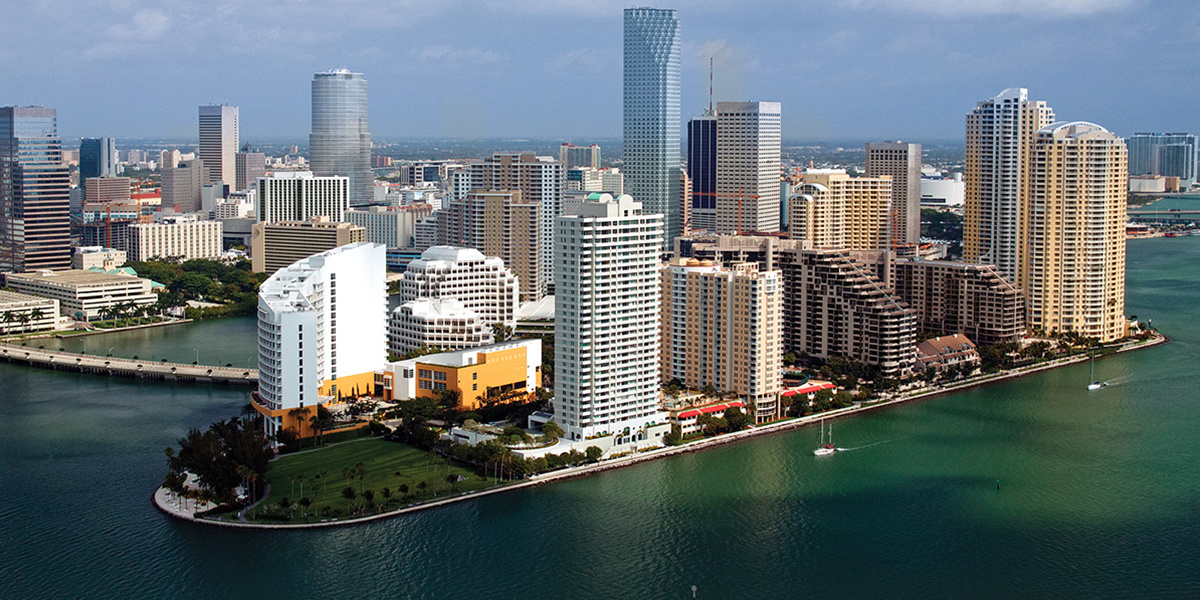

Climate change poses a key risk to low-lying Florida. When Climate Central ranked the 25 U.S. coastal cities that would be most vulnerable to coastal flooding in 2050 due to sea level rise projections, 20 of them were in the Sunshine State.
But Florida Governor Rick Scott has a history of sticking his head in the disappearing sand. In 2015, reports surfaced that his government had banned the Florida Department of Environmental Protection from even using the words “climate change” in reports. Though he denies those charges, he also denies climate change. When asked to comment on it, he famously replied, “I’m not a scientist.”
Now, the group with the most to lose from his inaction are forcing him to act.
On Monday, eight young Florida residents sued the state government to force it to implement a research-based “climate recovery plan,” the Miami Herald reported.
The plaintiffs range in age from 10 to 20 and are part of a growing trend of groups heading to the courts to either force action on or receive damages for the impacts of climate change.
In fact, the young people are represented by Our Children’s Trust, the non-profit behind a similar case brought by 21 young people against the federal government, claiming it violated their rights by basing the national energy plan on fossil fuels that cause the climate to change in ways that will imperil their futures. The federal case received an Oct. 29 trial date earlier this month. The youngest plaintiff in the Florida case, 10-year-old Levi Draheim, is also named in the federal suit.
One of the Florida plaintiffs, University of Miami marine science student Delaney Reynolds, reached out to Our Children’s Trust, inspired by their federal case, and signed up to join the Florida case they were already planning.
“Gov. Scott says he’s not a scientist. Well, neither are most of the people that are forced to take action because the state is failing us,” Reynolds told the Miami Herald.
Our Children’s Trust also has similar cases pending in Alaska, Colorado, Maine, Massachusetts, New Mexico, North Carolina, Oregon and Washington.
But the fact that Florida has to be sued into action is especially counter-intuitive. According to the Miami Herald, Miami Beach has already spent $125 million keeping flood water out of its streets, and the National Oceanic and Atmospheric Administration estimates streets in Miami could flood every day as early as 2070.
Florida doctors have also observed that climate change is already impacting the health of their patients.
The suit reprimands Scott’s government both for failing to reduce the state’s carbon dioxide emissions and for failing to act to protect the coasts.
But Scott’s spokesperson McKinley Lewis denied those charges. “The Governor signed one of the largest environmental protection budgets in Florida’s history last month—investing $4 billion into Florida’s environment. The Governor is focused on real solutions to protect our environment—not political theater or a lawsuit orchestrated by a group based in Eugene, Oregon,” he told the Miami Herald in a statement.
Senior Our Children’s Trust attorney Andrea Rodgers expects the case to go to trial by the end of 2018.
Florida Faces 3 Toxic Crises Triggered by Flooding https://t.co/m3PsSHxobi @greenpeaceusa @foe_us
— EcoWatch (@EcoWatch) October 14, 2017

 233k
233k  41k
41k  Subscribe
Subscribe 